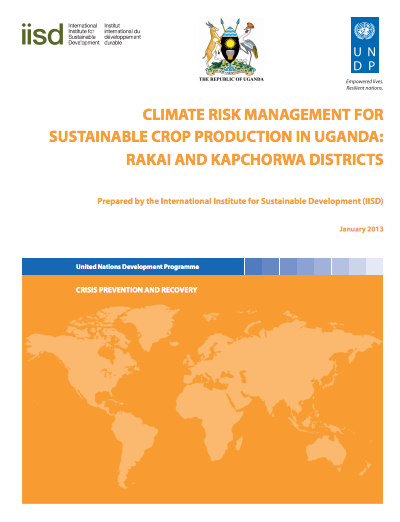Climate Risk Management for Sustainable Crop Production in Uganda: Rakai and Kapchorwa Districts

Agriculture is the backbone of the Ugandan economy. Most of it is rain-fed and relies on limited external inputs, making the country very sensitive to climate variability and change. The impacts of floods and droughts on maize, beans and coffee production already threaten rural livelihoods. Temperatures in Uganda have been steadily increasing since 1960, and climate hazards such as floods and droughts have become more frequent and intense, a trend expected to continue. Ugandan smallholder farmers already know, and in some cases apply, various global best practices to reduce climate risks. But much remains to be done to improve these local responses. Adopting small-scale irrigation, conservation agriculture measures, optimum crop diversification and intercropping techniques, and watershed-scale approaches to crop production could contribute to offsetting the negative impacts of climate change. Further efforts could disseminate culturally acceptable and affordable stress-resistant crop varieties, promote appropriate storage systems, improve road infrastructure and flood control structures, and enhance the role of information and communication technologies for accurate, reliable and timely climate information. Combining local and scientific knowledge for improved local weather forecasts and early-warning systems and for optimum use of agroforestry, for example, could provide innovative and practical solutions.